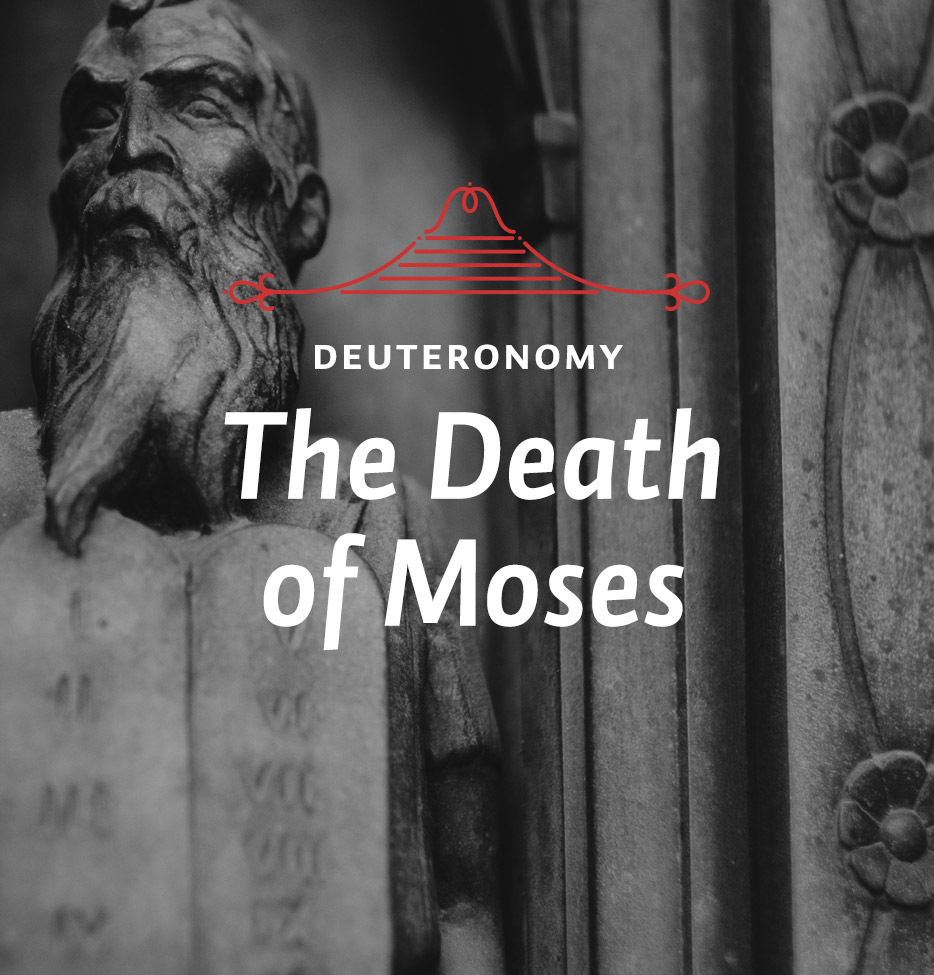Charles Haddon Spurgeon preached a sermon called “Sermons from Saintly Deathbeds,” in which he looked at some of the testimonies of believers at the very end of their lives.1 It’s fascinating to study these. For example, Matthew Henry, a great commentator and godly man, said when he was dying, “A life spent in the service of God and communion with Him is the most comfortable and pleasant life that anyone can live in this world.”2 Another example, far less known, is Thomas Halyburton, a great Scottish preacher born in the 1600s. He said, “You may… believe a man venturing on eternity…. I have weighed eternity this last night. I have looked on death as stript of all things pleasant to nature… and under the view of all these, I have found that in the way of God that gave satisfaction; not only a rational satisfaction, but a heart-engaging power attending it, that makes me rejoice.”3
Moses, the servant of God, had many dying words. In a sense, they are the entire book of Deuteronomy. It consists of three addresses, and we looked at two of them. The first was urging godliness upon the people, and the second dealt with a challenge to the people. Now, in Deuteronomy 33, Moses gives his third address, which is a blessing upon the tribes. As this book concludes, we see that Moses’ last words are in praise of God, and the last thing God has to say in this book, in the last three verses, is praise of Moses.
It’s interesting to note that in the first five books of the Bible, the dying words of only one other man are recorded by Moses. At the very end of the book of Genesis, we have the final words of Jacob. He gives a series of blessings on the tribes that is very similar to what Moses himself says here as he comes to the end of Deuteronomy, which is an interesting parallel. The blessings of Jacob can also be compared with Moses’ second song, which is found in the previous chapter. Charles Erdman points out that Moses’ second song and the final blessing both anticipate the future, but they are strikingly contrasted.4 The song talks about apostasy and failure, while the blessing is bright with expectation of divine favor.
Moses had every reason to be honest about the situation. He had experienced their waywardness for forty years in the wilderness. He has told them that the time is coming when they’re going to fall away, and that then the judgment of God is going to come. He is warning them so that they will stay close to God and prolong for as long as possible the punishment that will eventually come. But even with these warnings of what will happen, Moses’ very last words are words of blessing.
This is the way it is in the Christian life. Many failures flow from us during our lives, but when everything is drawn together at the end, our final thoughts and observations have to do with the grace and the glory of God, and His faithfulness to the end.
There is a preamble to the blessings, seen in verses 2-5. This third address begins with God—“The LORD” (v. 2)—and it ends with God as well. That is the biblical world- and life-view. This is what we see in Romans 11, when Paul gets to the end of the most difficult section of perhaps the most difficult book in the Bible. After writing about election, reprobation and God’s purposes in history, Paul breaks out in praise of God. His last words are these, “For from him and through him and to him are all things. To him be the glory forever! Amen” (Rom. 11:36). Like Moses, Paul also wraps up by saying that it starts with God, is from God, and it ends with God too. To Him be the glory.
1Charles Haddon Spurgeon, “Sermons from Saintly Deathbeds” (sermon no. 783), Metropolitan Tabernacle, Newington, London, December 1, 1867.
2Quoted in C. Palmer, “Matthew Henry,” in The Sunday Magazine, ed. Thomas Guthrie (London: Strahan & Co., 1872), 333.
3Memoirs of the Rev. Thomas Halyburton (Edinburgh: John Johnstone, 1848), 258.






